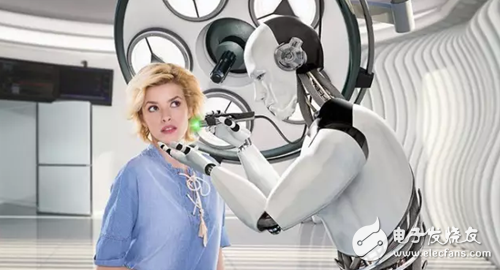The rapid development of the robotics industry is truly remarkable. It's no exaggeration to say that robots are now a common sight on our streets. Recently, there have been significant advancements in the medical field, particularly with the use of robotic systems in healthcare.
At the Watson Cancer Counseling Center at the First Hospital of Nanjing, an oncologist shared a 60-year-old male patient's gastric cancer case with a robot. This included the patient’s medical history, treatment details, and information about cancer metastasis. After the robot "listened" and "processed" the information for just 10 seconds, it provided a comprehensive analysis of the treatment plan—complete with medication recommendations, treatment options, and references.

Unlike human doctors who rely on years of clinical experience, Watson uses global data from thousands of cases to generate insights. Watson is not a replacement for doctors but serves as a powerful tool to assist them. Its database includes over 300 medical journals, 250 oncology textbooks, and 15 million research papers. This allows it to offer personalized, evidence-based treatment plans tailored to each patient’s condition.
Watson also highlights possible treatment options and those that are not recommended. When a doctor selects a plan, Watson provides detailed statistics such as case numbers, survival rates, and side effect probabilities—helping doctors evaluate the effectiveness and risks of each option.
However, it's important to remember that Watson cannot replace the emotional and personal connection between a doctor and a patient. Human doctors consider not only medical evidence but also the patient’s individual circumstances, cultural background, and emotional needs. A robot, on the other hand, follows strict guidelines and lacks the warmth and empathy that human interaction brings.
When used together, doctors and Watson can deliver more standardized, effective, and compassionate care. This combination helps build patients’ confidence in their cancer treatment journey.
Developed by IBM, Watson has partnered with top cancer hospitals in the U.S. and is considered one of the most advanced AI systems in oncology. It currently covers breast, lung, rectal, colon, stomach, cervical, ovarian, and prostate cancers. By 2017, it was expected to expand to 9–12 types of cancer, marking a major step forward in intelligent healthcare.
Medical PCB manufacturer,Medical PCB Assembly,Medical PCB,Medical device PCB Design,Medical PCB Assembly Quotes
Dongguan Jingling Communication Technology Co., Ltd. , https://www.jlpcba.com